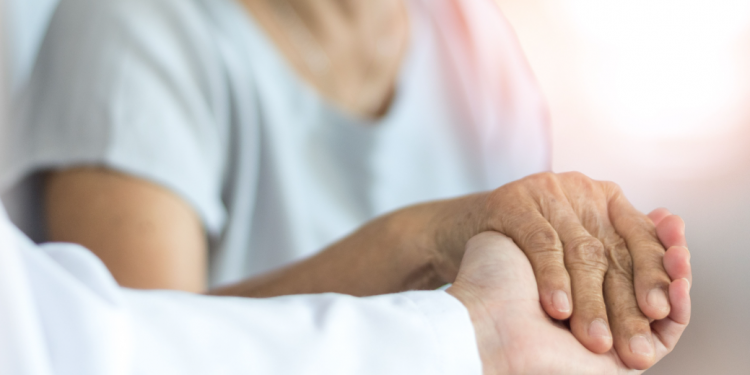by Aanika Parikh
For most Americans, doctor visits are a constant in our lives, whether it be for our yearly checkups or specific medical concerns. While treatments and procedures may seem like the most important part of our medical care, we often overlook the importance of communicating with our healthcare providers.
Language differences, cultural misunderstandings, and other communication barriers may lead to detrimental effects on the quality of care you receive. Moreover, this harmful disparity clearly exists in patient-provider relationships; a study reports 75% of orthopedic surgeons believed they conveyed all necessary information to patients, when only 21% of patients felt satisfied with their provider’s communication (Doctor-Patient Communication: A Review). It is especially important that individuals suffering from Traumatic Brain Injuries (TBIs) understand the importance of communication with their medical team as they receive critical care.
Proper communication between the provider and patient allows for patients to develop trust for their caregivers and adequate knowledge about the care they receive. When patients feel uneasy about or foreign to their medical situation, they are less likely to commit to receiving—sometimes essential—surgery or treatment. On the other hand, effective communication has been shown to correlate with patients’ increased ability to tolerate pain, remain mentally collected, and recover from illness.
Vulnerable populations often suffer from TBI. Long-term consequences include memory loss, headaches, seizures, and more (What Are the Long-Term Effects of Mild Traumatic Brain Injury?). Moreover, TBI patients are often involved in serious, extended medical care such as physical, psychological, and other therapies (What You Need to Know About TBI Symptoms and Treatment). Thus, effective communication becomes even more essential in ensuring successful outcomes in unnerving situations.
This is evident in the case of Tamirra Stewart, who experienced discomfort after seeking medical care for her TBI. Stewart immediately advocated for herself by switching to a different provider. She would ask her doctor to slow down and reword his explanations when she felt herself losing focus. Even more, Stewart frequently relied on friends and family members to translate the doctor’s remarks in order to ensure she was educated on every stage of her treatment plan (How to Establish a Strong Doctor-Patient Relationship). Patients prone to anxiety in doctors’ offices may also benefit from writing down all of their questions for the provider beforehand, allowing for them to be confident with a definite plan of action.
While Traumatic Brain Injury can make communication with healthcare providers critical, other patient-doctor barriers such as lingual and cultural differences can also demand a stronger need for adequate communication. Dr. Meredith Li-Vollmer, a public health specialist in Seattle and King County, Washington, explains that her health department began to ask patients which faith-based groups, social service organizations, and other initiatives they are part of.
Moreover, providers ask which form of media they use in order to ensure health literacy efforts reach each patient equally. Dr. Vollmer already experienced success partnering with local ethnic organizations: providers reconsidered naming the H1N1 flu to “swine” flu, because the health department’s Somali partners believed associating the vaccine with pigs would reduce the probability of the Muslim population to take the vaccine (Strategies for Communicating with Vulnerable and Non-English Speaking Populations). Clearly, efforts by health departments to connect with social leaders from different cultural groups can largely improve the cultural competency of medical care.
Whether visiting a new neurologist for your TBI or driving to your routine yearly physical, we must recognize the importance of communicating with your physician to prevent anxiety and bewilderment with regards to the treatment plan and to promote more successful outcomes. Additionally, providers must connect with their local cultural groups in order to craft a healthcare system tailored to their community.
Aanika Parikh is a junior in high school and very passionate about health care and the medical sciences. She is also interested in combating public health inequities and plans to pursue a career as a medical doctor in the future. As an avid writer, Aanika uses her skills to advocate for health-related improvements.











